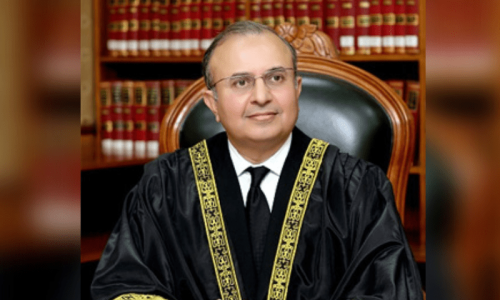A young man in Karachi was shot dead in cold blood over something that started as a minor argument in December 2012. The row escalated to involve an affluent feudal family’s son. News outlets and social media picked up on the story and within days, the murder of Shahzeb Khan became a national tragedy. The middle-class could somehow relate to the helplessness of his family and vented their frustration on the internet.
Every other Facebook status update, every tweet, every blog post and uploaded picture on the internet demanded justice for Shahzeb. And in a dramatic turn of events, his murderer, after initially having fled to Dubai, was forced to hand himself over to the authorities. This was deemed an unofficial victory for all internet activists, who with the power of social media, had managed to put injustice behind bars.
Keeping the aforementioned success story in mind, is it safe to assume that our newly transformed internet-based social structure has developed a mechanism to counter corruption, terrorism and injustice? Unfortunately that’s not how the real world works. The social media has surely transformed our virtual social behaviour. We don’t mind following or befriending a complete stranger on a social networking site or publicly announcing our activities with details, including our geographical location. But despite our social transformation over the internet, how close is social media activism to bringing a real life change?
According to critics like Malcolm Gladwell, social networks are designed to work on weak ties among its associates. The concept of establishing a relationship with a thought, cause or a group of like-minded individuals without risking much is promoting a culture where a person, despite being influenced by a popular cause, will develop a false state of achievement without contributing much in the real sense. For example, if a young woman in Islamabad is outraged at how women in the Federally Administered Tribal Areas were barred from voting in the general elections, an angry status message and couple of tweets with a fancy #hashtag will complete her ‘social activism’ quota for the day.
Apart from this artificial sense of contribution, campaigns relying mainly on social networks don’t contribute towards a centralised leadership structure nor do they create visible lines of authority. It is common to witness a lack of consensus on important issues when everyone has an equal say, and this results in a failure to develop strategies or set goals.
Social media evangelists may rightly argue that despite the ever fluctuating attention span of the internet where at one moment people are outraged on a suicide blast in Quetta and the next day are celebrating the birth of British royal baby, social media has most definitely fuelled a sense of participation among the youth. Not all but 1pc of these slacktivists might turn out to be our future Abdul Sattar Edhi. But until then, a lot has to evolve: weaker ties need to strengthen these tools for strategic engagement for important causes like terrorism and education. Till then we can continue to vent our anger on the declining quality of Ramazan transmission and show our online support for pop star Taher Shah.












































Dear visitor, the comments section is undergoing an overhaul and will return soon.